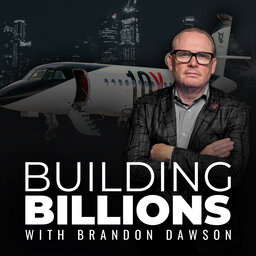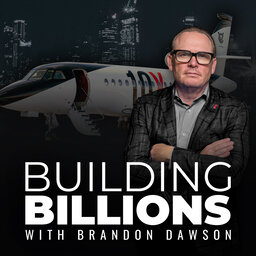EP 199 | From Barista to Multi Millionaire: An Interview with Mike Brown
On this episode of Building Billions, I sat down with Mike Brown, the visionary founder and former owner of Death Wish Coffee, the world-renowned brand that took the coffee industry by storm. Mike takes us on a thrilling journey through his entrepreneurial path, culminating in a jaw-dropping 9-figure exit from his beloved company.
As Mike recounts the challenges he faced along the way, including scaling up production, building a dedicated team, and navigating the fiercely competitive coffee market, listeners will gain valuable insights into the realities of building a successful business from scratch.
But the true highlight of the episode comes when Mike delves into the thrilling tale of his 9-figure exit from Death Wish Coffee. Discover how he strategically positioned the brand for maximum growth, attracted investors, and ultimately sealed a deal that exceeded even his wildest dreams. Mike's entrepreneurial journey is a testament to perseverance, innovation, and seizing opportunities when they arise.
Whether you're an aspiring entrepreneur seeking inspiration or simply intrigued by the world of business, this episode is a must-listen. Join us as we uncover the captivating story of Death Wish Coffee's incredible success, as told by the man himself, Mike Brown.
In 1 playlist(s)
Building Billions with Brandon Dawson
Welcome to Building Billions with Brandon Dawson. This podcast will be taking you on the journey of …Social links
Follow podcast
Recent clips

Let Go to Level Up: How I Built Hundreds of Millions
12:41

S2 EP 12 The Hard Truths I Learned in 2025
07:02

S2 EP 10 | The Truth About Success: The 5 Things School Will Never Teach You
11:01
 Building Billions with Brandon Dawson
Building Billions with Brandon Dawson